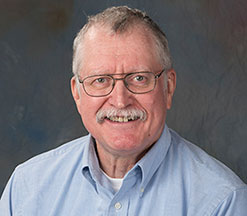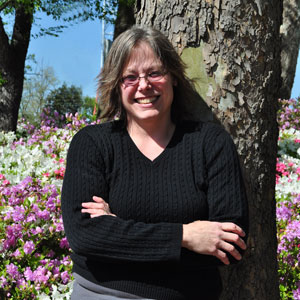Prof. Gavin Wright (Ph.D., Yale University) is William Robertson Coe Professor of American Economic History, Emeritus at Stanford University. He has taught at the University of Michigan, and at both Cambridge and Oxford. He has received a Guggenheim Fellowship and an National Science Foundation Grant, among many others. He has authored or coauthored many books, including Reckoning With Slavery (Oxford University Press, 1976) and Sharing the Prize: The Economics of the Civil Rights Revolution in the American South (The Belknap Press of Harvard University Press, 2013).
 Was there a particular person—a professor or someone outside of academia—who played an important role in your decision to become an economist?
Was there a particular person—a professor or someone outside of academia—who played an important role in your decision to become an economist?
The most influential economist for me was Joseph Conard, who taught the economic theory
seminar at Swarthmore College. From Joe Conard I learned that it is
possible to maintain Quaker values while pursuing economics as rigorously and
truthfully as possible. Sad to say, Joe Conard died of leukemia during my
senior year, so I did not have the chance to share thoughts with him as I
pursued my own career. In terms of economic history, the influential
person was William N. Parker at Yale, who hired me to work on the
Parker-Gallman sample from the 1860 census at the end of my first year of graduate school. It was all downhill after that.
If you were not an economist, what would you be?
The appeal of economics for me was that you could be an academic while also
having expertise and engagement with real-world issues. As it turned
out, I became
an economic historian, a relatively academic specialty. My best guess
is that if I were not an economist, I would still be in some type of
intellectual career.
Prof. Michael Haines (Ph.D., University of Pennsylvania) is Banfi Vintners
Distinguished Professor of Economics at Colgate and also a
research associate at the National Bureau of Economic Research with the Development of the American Economy Program. He is the author of three books and co-editor of A Population History of North America (Cambridge University Press, 2000). He has received several grants from the National Institutes of Health and subcontracts from the National Science Foundation, and served as a consultant to the World
Bank.

Do you have any good economics jokes you can share?
An economist is a person who is good with number, but doesn't have the personality to be an accountant.
[Editor's Note: There aren't as many good economist jokes as there are lawyer jokes, but here is a sampling that I found:
Three econometricians went out hunting, and came across a large deer. The
first econometrician fired, but missed, by a meter to the left. The second
econometrician fired, but also missed, by a meter to the right. The third
econometrician didn't fire, but shouted in triumph, "We got it! We got
it!"
What happens when you put two economists in a room together? You get three opinions.
Economists are people who are too smart for their own good and not smart enough for anyone else's.
Did you know economists have predicted nine out of the last five recessions?]
Mary Eschelbach Hansen (Ph.D., University of Illinois) is an expert in U.S. social policy. She is widely
published in the fields of child policy, bankruptcy, and economic
history. Her work addresses key issues in race, gender, and economic
inequality.
Her research has been funded by the National Science Foundation, the
National Institutes of Health, the Alfred P. Sloan Foundation, and the
Institute for New Economic Thinking.
 Was there a particular person—a professor or someone outside of academia—who played an important role in your decision to become an economist?
Was there a particular person—a professor or someone outside of academia—who played an important role in your decision to become an economist?
For me, undergraduate professors made all the difference. My interest in economics was kindled by my prof for intro micro at Saint Louis University (LeRoy Grossman). He was enthusiastic in class, but, more importantly, we talked a lot outside of class. My decision to pursue life as an academic economist was guided by Rick Cheney. Again, Rick and I talked a lot outside of class. He knew me well, so he guided me well. All of my career, I have worked to emulate my experience at SLU and to train new PhDs to do the same.
Prof. Robert Whaples (Ph.D., University of Pennsylvania) is Professor of Economics at Wake Forest University. He is the co-editor of Historical Perspectives on the American Economy
(Cambridge University Press, 1995) and The Routledge
Hndbook of Major Events in Economic History (Routledge, 2012), and is the author of the widely-cited
"Do Economists Agree on Anything?" He has taught a Great Courses course on Modern Economic Issues.
 What’s the best or worst advice you ever received when you were thinking about becoming an economist?
What’s the best or worst advice you ever received when you were thinking about becoming an economist?
The best advice to a budding economist (although I didn't read it until many years after I became an economist) comes from Friedrich Hayek: "nobody can be a great economist who is only an economist – and … the economist who is only an economist is likely to become a nuisance if not a positive danger.”
The worst advice I heard may have been that economics is important to study because it's all about money and you can earn a lot if you study it. Economics is about a lot more than just money and you can earn a very good living doing it. Money is important, but if that's your only motivation, you won't be happy as an economist or as a human being.
Who’s the most important economist most
people—including economists—have never heard of?
Most people have not heard of one of the most important economists of
the twentieth century, Simon Kuznets, who did more than anyone else to
conceptualize our national income and product accounts and to push
estimates of GDP well back into the 19th century.
Less well
known are two other economic historians who deserve to be read: Robert
Higgs, whose research on the expansion of the U.S. government,
especially Crisis and Leviathan, is essential and Price Fishback, whose research has rewritten our understanding of the Great Depression era.
Prof. Martin Saavedra (Ph.D., University of Pittsburgh) is an Assistant Professor of Economics at Oberlin College. He primarily
works in the fields of economic history, health economics, and labor
economics. Most of his research focuses on how early-life shocks affect
adult labor market and health outcomes.
 What’s the most underrated or overrated book or idea in the field of economics?
What’s the most underrated or overrated book or idea in the field of economics?
My favorite book in economics is Naked Economics, by Charles Wheelan. I
decided I wanted to become an economist after reading it. Freakonomics
is also a very fun book. In terms of ideas, I think that techniques from
computer science such as machine learning will play a very important
role in discoveries over the next few decades in economics.
Was there a particular person—a professor or someone outside of academia—who played an important role in your decision to become an economist?
As for who played an important an role in my life, this list is too long
to count. I've been very fortunate to have a excellent set of mentors
and professors since I took my first economics classes. Bloggers who I
have learned a lot from, although never met, include Greg Mankiw, Tyler
Cowen, and Andrew Gelman (although he is more of a statistician than an
economist).


